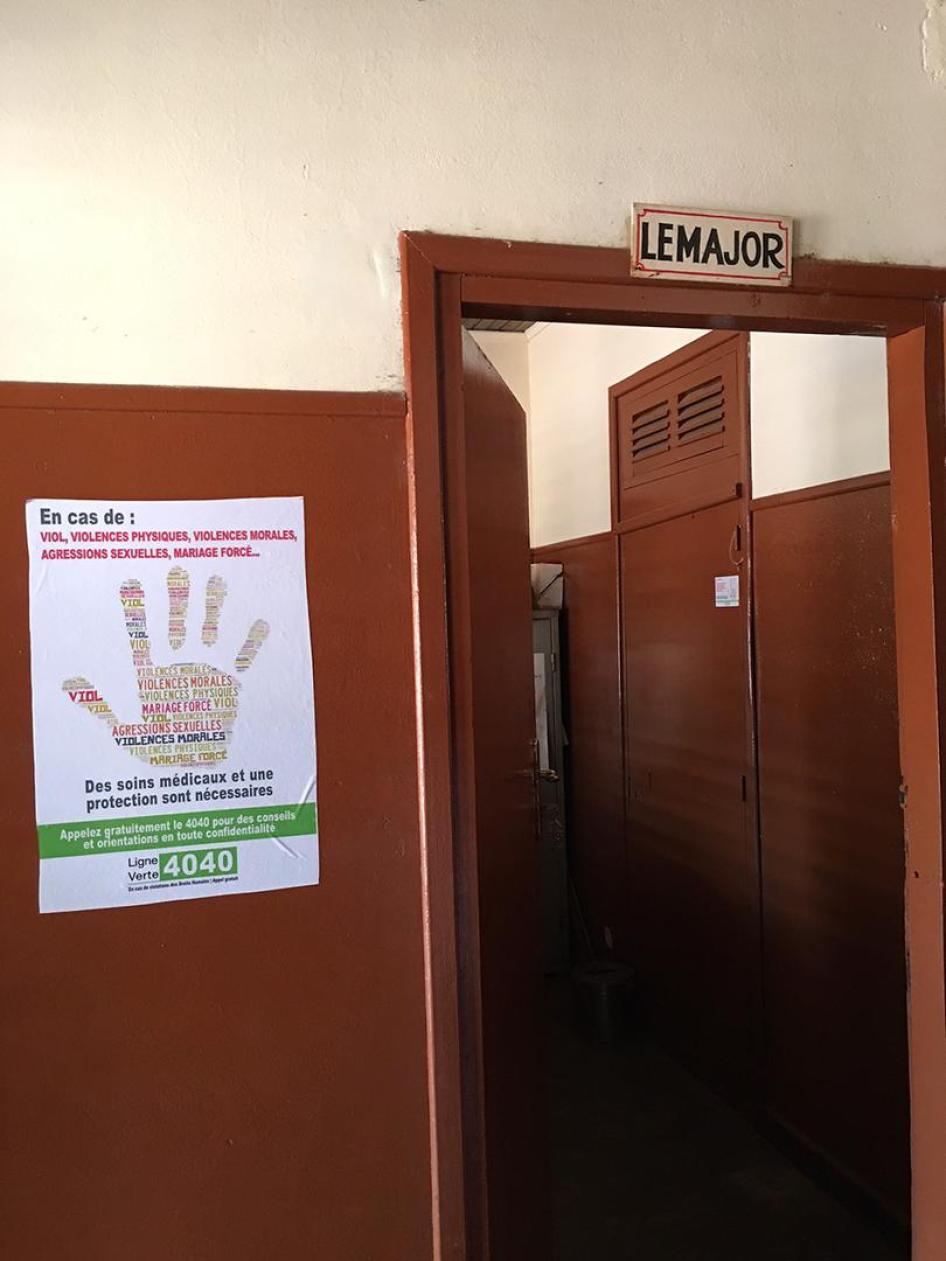The attack started while she was drawing water for her family. “Sophie,” then 20 years old, was returning to her home in Bambari, in Central African Republic (CAR), when she heard that the Seleka, mostly Muslim fighters who had ousted the previous government, had burned down her family’s house. Sophie fled into the bush with four other young women.
When they ran into a group of Seleka, she remembered, the men “started clapping their hands, showing joy.” They took Sophie and the others to a makeshift base in the bush, where they raped them repeatedly and forced them to do domestic chores. “Sometimes we prepared food, or did laundry,” she told me when I met her in May. “Sometimes when you were cooking, they would come and three of them would rape you. They did that three or four times a day—several men, different men.”
After three days, the young women escaped, but their ordeal did not end. As in other conflicts, survivors of rape in CAR, may face psychological trauma, life-altering illness or injury, and stigma or even rejection by family and community members. For Sophie, the result was pregnancy.
While recent news from CAR may make it seem like peacekeepers are the primary perpetrators of sexual abuse, far more women and girls suffer sexual violence at the hands of armed groups. In 2015, the U.N. declared June 19 the first International Day for the Elimination of Sexual Violence in Conflict with the hope of shining a light on the needs of victims, and ensuring their rights to justice and services.
More than a year after the rapes, Sophie—and many of the other women and girls we interviewed in CAR—had not been able to get much-needed health care. The women were hiding in a village when Sophie realized she was pregnant. She told me she would have had an abortion if that were an option, but the clinic in the village was closed. The health care workers had fled the fighting.
She eventually reached a village with a functioning health center, but she gave birth on her own because she couldn’t afford to pay for health care. Even where free health care is available, many of the women and girls we met didn’t know about the services, or couldn’t afford the transportation to reach them.
Some told us they didn’t seek care, fearing shame and stigma if people knew they had been raped. Women told us of being mocked or shunned, and even abandoned by husbands and family members.
Some women we talked with expressed a clear desire for accountability. Marie was raped by two Seleka in her neighborhood in Bangui, the capital, in 2013. “I have thought about justice,” she said. “I have thought about all these things that the Seleka have done: they pillaged houses, raped women, and killed people. I ask if justice is going to be done to them, and to repay people like me who have suffered.”
As with other countries where rape is widespread during conflict, CAR urgently needs to address the needs of rape victims. Survivors need health services, and community education is essential to counter stigma and build support networks for survivors. And as Marie said, they need justice. A Special Criminal Court for CAR could be instrumental in prosecuting sexual violence. But it will need to offer adequate psychological support for victims and protection for victims, witnesses, lawyers, and judges if victims are to come forward. The U.N., other international agencies and donors will need to help.
The U.N. special representative of the secretary-general on sexual violence in conflict, Zainab Bangura, said that June 19 would mark an annual “global call to action for security, justice, and service sectors on behalf of survivors of sexual violence in conflict all over the world.” The United Nations General Assembly’s establishment of this international day is one of a number of policies and promises governments and the U.N. have made over the years to protect women and girls from sexual violence during war, ensure care for survivors, and hold rapists to account.
But women and girls in conflict are still waiting to see the impact of these commitments.
In the meantime, women and girls in CAR remain at risk every day, when they go to market or to the fields, simply to feed and support their families. Setting aside June 19 as a special day will help draw attention to their needs. But many, like Sophie—who wonders how she will provide for her daughter, and how she will someday explain who her father is—have to rebuild their lives, both in CAR and in other countries around the world. They will need services and support every day of the year.









